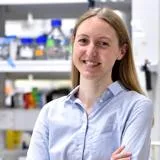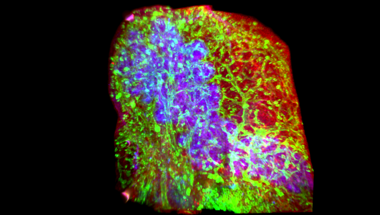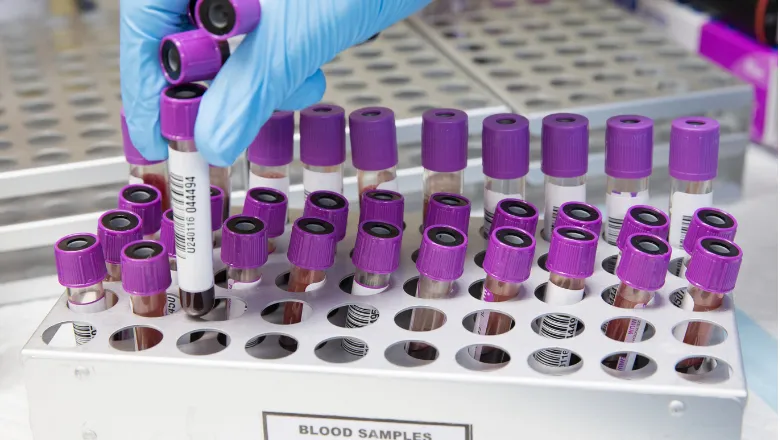
Biography
Our research focuses on how the human neocortex develops with the correct size, shape and organisation, and the role of the extracellular matrix in these processes. The extracellular matrix is highly abundant in the developing human neocortex, but its function in neocortex development is not yet fully understood. To address this we use an interdisciplinary approach to look at the cellular and mechanical mechanisms by which the extracellular matrix drives the development of the human neocortex, including the formation of the folds present on the surface of the neocortex, and how dysregulation of these functions can lead to neurodevelopmental disorders.
Please see my Research Staff Profile for more detail.
Find out more about my research:
Key publications:
- Long et. al., 2018. Extracellular matrix components HAPLN1, lumican and collagen I cause hyaluronic acid-dependent folding of the developing human neocortex. Neuron.
- Long et. al., 2019. How the extracellular matrix shapes neural development. Open Biology.
- Long et al., 2016. Integrin signaling regulates the expansion of neuroepithelial progenitors and neurogenesis via Wnt7a and Decorin. Nature Communications.
- Kalebic et al., 2019. Neocortical Expansion Due to Increased Proliferation of Basal Progenitors Is Linked to Changes in Their Morphology. Cell Stem Cell.
- Güven et al., 2020. Extracellular Matrix-Inducing Sox9 Promotes Both Basal Progenitor Proliferation and Gliogenesis in Developing Neocortex. ELife.
Research

From Developmental Biology to Regenerative Medicine
Understanding organ development and tissue regeneration provides a framework for elucidating disease mechanisms as well as for developing new therapeutics.

King’s MechanoBiology Centre (KMBC)
The King’s MechanoBiology Centre gives a common platform for researchers across different disciplines with complementary interests in mechanobiology
News
Researchers awarded BBSRC grant to investigate the role of neuronal activity in brain development.
The project will look at how brain connections are formed in the early stage of development in mouse and human.

Dr Katherine Long receives The Medical Research Foundation Changing Policy and Practice Award.
The award supports the dissemination of research into COVID-19 risk to fetal development

£14m provided for research into the brain development of children who were "in the womb" during the COVID-19 pandemic
Researchers at King’s College London have been given £14m to conduct a six-year research programme into the effects COVID-19 on children.

Evidence of haemorrhages in fetal brain tissue associated with the presence of SARS-CoV-2
New research from the Institute of Psychiatry, Psychology & Neuroscience (IoPPN) at King’s College London has found evidence of small haemorrhages in fetal...

Research

From Developmental Biology to Regenerative Medicine
Understanding organ development and tissue regeneration provides a framework for elucidating disease mechanisms as well as for developing new therapeutics.

King’s MechanoBiology Centre (KMBC)
The King’s MechanoBiology Centre gives a common platform for researchers across different disciplines with complementary interests in mechanobiology
News
Researchers awarded BBSRC grant to investigate the role of neuronal activity in brain development.
The project will look at how brain connections are formed in the early stage of development in mouse and human.

Dr Katherine Long receives The Medical Research Foundation Changing Policy and Practice Award.
The award supports the dissemination of research into COVID-19 risk to fetal development

£14m provided for research into the brain development of children who were "in the womb" during the COVID-19 pandemic
Researchers at King’s College London have been given £14m to conduct a six-year research programme into the effects COVID-19 on children.

Evidence of haemorrhages in fetal brain tissue associated with the presence of SARS-CoV-2
New research from the Institute of Psychiatry, Psychology & Neuroscience (IoPPN) at King’s College London has found evidence of small haemorrhages in fetal...

